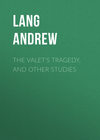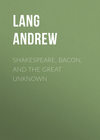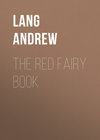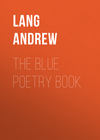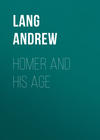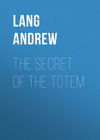Kitabı oku: «Waverley; Or, 'Tis Sixty Years Since», sayfa 25
CHAPTER V
THINGS MEND A LITTLE
About noon Mr. Morton returned and brought an invitation from Major Melville that Mr. Waverley would honour him with his company to dinner, notwithstanding the unpleasant affair which detained him at Cairnvreckan, from which he should heartily rejoice to see Mr. Waverley completely extricated. The truth was that Mr. Morton’s favourable report and opinion had somewhat staggered the preconceptions of the old soldier concerning Edward’s supposed accession to the mutiny in the regiment; and in the unfortunate state of the country the mere suspicion of disaffection or an inclination to join the insurgent Jacobites might infer criminality indeed, but certainly not dishonour. Besides, a person whom the Major trusted had reported to him (though, as it proved, inaccurately) a contradiction of the agitating news of the preceding evening. According to this second edition of the intelligence, the Highlanders had withdrawn from the Lowland frontier with the purpose of following the army in their march to Inverness. The Major was at a loss, indeed, to reconcile his information with the well-known abilities of some of the gentlemen in the Highland army, yet it was the course which was likely to be most agreeable to others. He remembered the same policy had detained them in the north in the year 1715, and he anticipated a similar termination to the insurrection as upon that occasion.
This news put him in such good-humour that he readily acquiesced in Mr. Morton’s proposal to pay some hospitable attention to his unfortunate guest, and voluntarily added, he hoped the whole affair would prove a youthful escapade, which might be easily atoned by a short confinement. The kind mediator had some trouble to prevail on his young friend to accept the invitation. He dared not urge to him the real motive, which was a good-natured wish to secure a favourable report of Waverley’s case from Major Melville to Governor Blakeney. He remarked, from the flashes of our hero’s spirit, that touching upon this topic would be sure to defeat his purpose. He therefore pleaded that the invitation argued the Major’s disbelief of any part of the accusation which was inconsistent with Waverley’s conduct as a soldier and a man of honour, and that to decline his courtesy might be interpreted into a consciousness that it was unmerited. In short, he so far satisfied Edward that the manly and proper course was to meet the Major on easy terms that, suppressing his strong dislike again to encounter his cold and punctilious civility, Waverley agreed to be guided by his new friend.
The meeting at first was stiff and formal enough. But Edward, having accepted the invitation, and his mind being really soothed and relieved by the kindness of Morton, held himself bound to behave with ease, though he could not affect cordiality. The Major was somewhat of a bon vivant, and his wine was excellent. He told his old campaign stories, and displayed much knowledge of men and manners. Mr. Morton had an internal fund of placid and quiet gaiety, which seldom failed to enliven any small party in which he found himself pleasantly seated. Waverley, whose life was a dream, gave ready way to the predominating impulse and became the most lively of the party. He had at all times remarkable natural powers of conversation, though easily silenced by discouragement. On the present occasion he piqued himself upon leaving on the minds of his companions a favourable impression of one who, under such disastrous circumstances, could sustain his misfortunes with ease and gaiety. His spirits, though not unyielding, were abundantly elastic, and soon seconded his efforts. The trio were engaged in very lively discourse, apparently delighted with each other, and the kind host was pressing a third bottle of Burgundy, when the sound of a drum was heard at some distance. The Major, who, in the glee of an old soldier, had forgot the duties of a magistrate, cursed, with a muttered military oath, the circumstances which recalled him to his official functions. He rose and went towards the window, which commanded a very near view of the highroad, and he was followed by his guests.
The drum advanced, beating no measured martial tune, but a kind of rub-a-dub-dub, like that with which the fire-drum startles the slumbering artizans of a Scotch burgh. It is the object of this history to do justice to all men; I must therefore record, in justice to the drummer, that he protested he could beat any known march or point of war known in the British army, and had accordingly commenced with ‘Dumbarton’s Drums,’ when he was silenced by Gifted Gilfillan, the commander of the party, who refused to permit his followers to move to this profane, and even, as he said, persecutive tune, and commanded the drummer to beat the 119th Psalm. As this was beyond the capacity of the drubber of sheepskin, he was fain to have recourse to the inoffensive row-de-dow as a harmless substitute for the sacred music which his instrument or skill were unable to achieve. This may be held a trifling anecdote, but the drummer in question was no less than town-drummer of Anderton. I remember his successor in office, a member of that enlightened body, the British Convention. Be his memory, therefore, treated with due respect.
CHAPTER VI
A VOLUNTEER SIXTY YEARS SINCE
On hearing the unwelcome sound of the drum, Major Melville hastily opened a sashed door and stepped out upon a sort of terrace which divided his house from the highroad from which the martial music proceeded. Waverley and his new friend followed him, though probably he would have dispensed with their attendance. They soon recognised in solemn march, first, the performer upon the drum; secondly, a large flag of four compartments, on which were inscribed the words, COVENANT, KIRK, KING, KINGDOMS. The person who was honoured with this charge was followed by the commander of the party, a thin, dark, rigid-looking man, about sixty years old. The spiritual pride, which in mine host of the Candlestick mantled in a sort of supercilious hypocrisy, was in this man’s face elevated and yet darkened by genuine and undoubting fanaticism. It was impossible to behold him without imagination placing him in some strange crisis, where religious zeal was the ruling principle. A martyr at the stake, a soldier in the field, a lonely and banished wanderer consoled by the intensity and supposed purity of his faith under every earthly privation, perhaps a persecuting inquisitor, as terrific in power as unyielding in adversity; any of these seemed congenial characters to this personage. With these high traits of energy, there was something in the affected precision and solemnity of his deportment and discourse that bordered upon the ludicrous; so that, according to the mood of the spectator’s mind and the light under which Mr. Gilfillan presented himself, one might have feared, admired, or laughed at him. His dress was that of a West-Country peasant, of better materials indeed than that of the lower rank, but in no respect affecting either the mode of the age or of the Scottish gentry at any period. His arms were a broadsword and pistols, which, from the antiquity of their appearance, might have seen the rout of Pentland or Bothwell Brigg.
As he came up a few steps to meet Major Melville, and touched solemnly, but slightly, his huge and over-brimmed blue bonnet, in answer to the Major, who had courteously raised a small triangular gold-laced hat, Waverley was irresistibly impressed with the idea that he beheld a leader of the Roundheads of yore in conference with one of Marlborough’s captains.
The group of about thirty armed men who followed this gifted commander was of a motley description. They were in ordinary Lowland dresses, of different colours, which, contrasted with the arms they bore, gave them an irregular and mobbish appearance; so much is the eye accustomed to connect uniformity of dress with the military character. In front were a few who apparently partook of their leader’s enthusiasm, men obviously to be feared in a combat, where their natural courage was exalted by religious zeal. Others puffed and strutted, filled with the importance of carrying arms and all the novelty of their situation, while the rest, apparently fatigued with their march, dragged their limbs listlessly along, or straggled from their companions to procure such refreshments as the neighbouring cottages and alehouses afforded. Six grenadiers of Ligonier’s, thought the Major to himself, as his mind reverted to his own military experience, would have sent all these fellows to the right about.
Greeting, however, Mr. Gilfillan civilly, he requested to know if he had received the letter he had sent to him upon his march, and could undertake the charge of the state prisoner whom he there mentioned as far as Stirling Castle. ‘Yea,’ was the concise reply of the Cameronian leader, in a voice which seemed to issue from the very penetralia of his person.
‘But your escort, Mr. Gilfillan, is not so strong as I expected,’ said Major Melville.
‘Some of the people,’ replied Gilfillan, ‘hungered and were athirst by the way, and tarried until their poor souls were refreshed with the word.’
‘I am sorry, sir,’ replied the Major, ‘you did not trust to your refreshing your men at Cairnvreckan; whatever my house contains is at the command of persons employed in the service.’
‘It was not of creature-comforts I spake,’ answered the Covenanter, regarding Major Melville with something like a smile of contempt; ‘howbeit, I thank you; but the people remained waiting upon the precious Mr. Jabesh Rentowel for the out-pouring of the afternoon exhortation.’
‘And have you, sir,’ said the Major, ‘when the rebels are about to spread themselves through this country, actually left a great part of your command at a fieldpreaching?’
Gilfillan again smiled scornfully as he made this indirect answer – ‘Even thus are the children of this world wiser in their generation than the children of light!’
‘However, sir,’ said the Major, ‘as you are to take charge of this gentleman to Stirling, and deliver him, with these papers, into the hands of Governor Blakeney, I beseech you to observe some rules of military discipline upon your march. For example, I would advise you to keep your men more closely together, and that each in his march should cover his file-leader, instead of straggling like geese upon a common; and, for fear of surprise, I further recommend to you to form a small advance-party of your best men, with a single vidette in front of the whole march, so that when you approach a village or a wood’ – (here the Major interrupted himself) – ‘But as I don’t observe you listen to me, Mr. Gilfillan, I suppose I need not give myself the trouble to say more upon the subject. You are a better judge, unquestionably, than I am of the measures to be pursued; but one thing I would have you well aware of, that you are to treat this gentleman, your prisoner, with no rigour nor incivility, and are to subject him to no other restraint than is necessary for his security.’
‘I have looked into my commission,’ said Mr. Gilfillan,’ subscribed by a worthy and professing nobleman, William, Earl of Glencairn; nor do I find it therein set down that I am to receive any charges or commands anent my doings from Major William Melville of Cairnvreckan.’
Major Melville reddened even to the well-powdered ears which appeared beneath his neat military sidecurls, the more so as he observed Mr. Morton smile at the same moment. ‘Mr. Gilfillan,’ he answered, with some asperity, ‘I beg ten thousand pardons for interfering with a person of your importance. I thought, however, that as you have been bred a grazier, if I mistake not, there might be occasion to remind you of the difference between Highlanders and Highland cattle; and if you should happen to meet with any gentleman who has seen service, and is disposed to speak upon the subject, I should still imagine that listening to him would do you no sort of harm. But I have done, and have only once more to recommend this gentleman to your civility as well as to your custody. Mr. Waverley, I am truly sorry we should part in this way; but I trust, when you are again in this country, I may have an opportunity to render Cairnvreckan more agreeable than circumstances have permitted on this occasion.’
So saying, he shook our hero by the hand. Morton also took an affectionate farewell, and Waverley, having mounted his horse, with a musketeer leading it by the bridle and a file upon each side to prevent his escape, set forward upon the march with Gilfillan and his party. Through the little village they were accompanied with the shouts of the children, who cried out, ‘Eh! see to the Southland gentleman that’s gaun to be hanged for shooting lang John Mucklewrath, the smith!
CHAPTER VII
AN INCIDENT
The dinner hour of Scotland Sixty Years Since was two o’clock. It was therefore about four o’clock of a delightful autumn afternoon that Mr. Gilfillan commenced his march, in hopes, although Stirling was eighteen miles distant, he might be able, by becoming a borrower of the night for an hour or two, to reach it that evening. He therefore put forth his strength, and marched stoutly along at the head of his followers, eyeing our hero from time to time, as if he longed to enter into controversy with him. At length, unable to resist the temptation, he slackened his pace till he was alongside of his prisoner’s horse, and after marching a few steps in silence abreast of him, he suddenly asked – ‘Can ye say wha the carle was wi’ the black coat and the mousted head, that was wi’ the Laird of Cairnvreckan?’
‘A Presbyterian clergyman,’ answered Waverley.
‘Presbyterian!’ answered Gilfillan contemptuously; ‘a wretched Erastian, or rather an obscure Prelatist, a favourer of the black indulgence, ane of thae dumb dogs that canna bark; they tell ower a clash o’ terror and a clatter o’ comfort in their sermons, without ony sense, or savour, or life. Ye’ve been fed in siccan a fauld, belike?’
‘No; I am of the Church of England,’ said Waverley.
‘And they’re just neighbour-like,’ replied the Covenanter; ‘and nae wonder they gree sae weel. Wha wad hae thought the goodly structure of the Kirk of Scotland, built up by our fathers in 1642, wad hae been defaced by carnal ends and the corruptions of the time; – ay, wha wad hae thought the carved work of the sanctuary would hae been sae soon cut down!’
To this lamentation, which one or two of the assistants chorussed with a deep groan, our hero thought it unnecessary to make any reply. Whereupon Mr. Gilfillan, resolving that he should be a hearer at least, if not a disputant, proceeded in his Jeremiade.
‘And now is it wonderful, when, for lack of exercise anent the call to the service of the altar and the duty of the day, ministers fall into sinful compliances with patronage, and indemnities, and oaths, and bonds, and other corruptions, – is it wonderful, I say, that you, sir, and other sic-like unhappy persons, should labour to build up your auld Babel of iniquity, as in the bluidy persecuting saint-killing times? I trow, gin ye werena blinded wi’ the graces and favours, and services and enjoyments, and employments and inheritances, of this wicked world, I could prove to you, by the Scripture, in what a filthy rag ye put your trust; and that your surplices, and your copes and vestments, are but cast-off garments of the muckle harlot that sitteth upon seven hills and drinketh of the cup of abomination. But, I trow, ye are deaf as adders upon that side of the head; ay, ye are deceived with her enchantments, and ye traffic with her merchandise, and ye are drunk with the cup of her fornication!’
How much longer this military theologist might have continued his invective, in which he spared nobody but the scattered remnant of HILL-FOLK, as he called them, is absolutely uncertain. His matter was copious, his voice powerful, and his memory strong; so that there was little chance of his ending his exhortation till the party had reached Stirling, had not his attention been attracted by a pedlar who had joined the march from a cross-road, and who sighed or groaned with great regularity at all fitting pauses of his homily.
‘And what may ye be, friend?’ said the Gifted Gilfillan.
‘A puir pedlar, that’s bound for Stirling, and craves the protection of your honour’s party in these kittle times. Ah’ your honour has a notable faculty in searching and explaining the secret, – ay, the secret and obscure and incomprehensible causes of the backslidings of the land; ay, your honour touches the root o’ the matter.’
‘Friend,’ said Gilfillan, with a more complacent voice than he had hitherto used, ‘honour not me. I do not go out to park-dikes and to steadings and to market-towns to have herds and cottars and burghers pull off their bonnets to me as they do to Major Melville o’ Cairnvreckan, and ca’ me laird or captain or honour. No; my sma’ means, whilk are not aboon twenty thousand merk, have had the blessing of increase, but the pride of my heart has not increased with them; nor do I delight to be called captain, though I have the subscribed commission of that gospel-searching nobleman, the Earl of Glencairn, fa whilk I am so designated. While I live I am and will be called Habakkuk Gilfillan, who will stand up for the standards of doctrine agreed on by the ance famous Kirk of Scotland, before she trafficked with the accursed Achan, while he has a plack in his purse or a drap o’ bluid in his body.’
‘Ah,’ said the pedlar, ‘I have seen your land about Mauchlin. A fertile spot! your lines have fallen in pleasant places! And siccan a breed o’ cattle is not in ony laird’s land in Scotland.’
‘Ye say right, – ye say right, friend’ retorted Gilfillan eagerly, for he was not inaccessible to flattery upon this subject, – ‘ye say right; they are the real Lancashire, and there’s no the like o’ them even at the mains of Kilmaurs’; and he then entered into a discussion of their excellences, to which our readers will probably be as indifferent as our hero. After this excursion the leader returned to his theological discussions, while the pedlar, less profound upon those mystic points, contented himself with groaning and expressing his edification at suitable intervals.
‘What a blessing it would be to the puir blinded popish nations among whom I hae sojourned, to have siccan a light to their paths! I hae been as far as Muscovia in my sma’ trading way, as a travelling merchant, and I hae been through France, and the Low Countries, and a’ Poland, and maist feck o’ Germany, and O! it would grieve your honour’s soul to see the murmuring and the singing and massing that’s in the kirk, and the piping that’s in the quire, and the heathenish dancing and dicing upon the Sabbath!’
This set Gilfillan off upon the Book of Sports and the Covenant, and the Engagers, and the Protesters, and the Whiggamore’s Raid, and the Assembly of Divines at Westminster, and the Longer and Shorter Catechism, and the Excommunication at Torwood, and the slaughter of Archbishop Sharp. This last topic, again, led him into the lawfulness of defensive arms, on which subject he uttered much more sense than could have been expected from some other parts of his harangue, and attracted even Waverley’s attention, who had hitherto been lost in his own sad reflections. Mr. Gilfillan then considered the lawfulness of a private man’s standing forth as the avenger of public oppression, and as he was labouring with great earnestness the cause of Mas James Mitchell, who fired at the Archbishop of Saint Andrews some years before the prelate’s assassination on Magus Muir, an incident occurred which interrupted his harangue.
The rays of the sun were lingering on the very verge of the horizon as the party ascended a hollow and somewhat steep path which led to the summit of a rising ground. The country was uninclosed, being part of a very extensive heath or common; but it was far from level, exhibiting in many places hollows filled with furze and broom; in others, little dingles of stunted brushwood. A thicket of the latter description crowned the hill up which the party ascended. The foremost of the band, being the stoutest and most active, had pushed on, and, having surmounted the ascent, were out of ken for the present. Gilfillan, with the pedlar and the small party who were Waverley’s more immediate guard, were near the top of the ascent, and the remainder straggled after them at a considerable interval.
Such was the situation of matters when the pedlar, missing, as he said, a little doggie which belonged to him, began to halt and whistle for the animal. This signal, repeated more than once, gave offence to the rigour of his companion, the rather because it appeared to indicate inattention to the treasures of theological and controversial knowledge which were pouring out for his edification. He therefore signified gruffly that he could not waste his time in waiting for an useless cur.
‘But if your honour wad consider the case of Tobit – ’
‘Tobit!’ exclaimed Gilffflan, with great heat; ‘Tobit and his dog baith are altogether heathenish and apocryphal, and none but a prelatist or a papist would draw them into question. I doubt I hae been mista’en in you, friend.’
‘Very likely,’ answered the pedlar, with great composure; ‘but ne’ertheless, I shall take leave to whistle again upon puir Bawty.’
This last signal was answered in an unexpected manner; for six or eight stout Highlanders, who lurked among the copse and brushwood, sprung into the hollow way and began to lay about them with their claymores. Gilfillan, unappalled at this undesirable apparition, cried out manfully, ‘The sword of the Lord and of Gideon!’ and, drawing his broadsword, would probably have done as much credit to the good old cause as any of its doughty champions at Drumclog, when, behold! the pedlar, snatching a musket from the person who was next him bestowed the butt of it with such emphasis on the head of his late instructor in the Cameronian creed that he was forthwith levelled to the ground. In the confusion which ensued the horse which bore our hero was shot by one of Gilfillan’s party, as he discharged his firelock at random. Waverley fell with, and indeed under, the animal, and sustained some severe contusions. But he was almost instantly extricated from the fallen steed by two Highlanders, who, each seizing him by the arm, hurried him away from the scuffle and from the highroad. They ran with great speed, half supporting and half dragging our hero, who could, however, distinguish a few dropping shots fired about the spot which he had left. This, as he afterwards learned, proceeded from Gilfillan’s party, who had now assembled, the stragglers in front and rear having joined the others. At their approach the Highlanders drew off, but not before they had rifled Gilfillan and two of his people, who remained on the spot grievously wounded. A few shots were exchanged betwixt them and the Westlanders; but the latter, now without a commander, and apprehensive of a second ambush, did not make any serious effort to recover their prisoner, judging it more wise to proceed on their journey to Stirling, carrying with them their wounded captain and comrades.

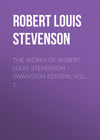

![XXXII Ballades in Blue China [1885]](https://cdn.litres.ru/pub/c/cover_100/25230660.jpg)
